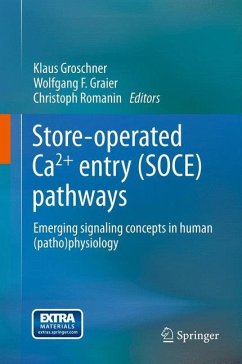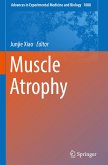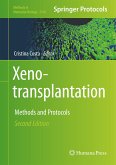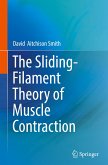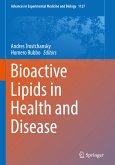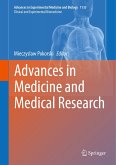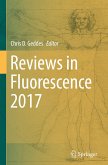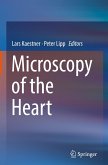Store-operated Ca2+ entry (SOCE) pathways
Emerging signaling concepts in human (patho)physiology
Herausgegeben:Groschner, Klaus; Graier, Wolfgang; Romanin, Christoph
Store-operated Ca2+ entry (SOCE) pathways
Emerging signaling concepts in human (patho)physiology
Herausgegeben:Groschner, Klaus; Graier, Wolfgang; Romanin, Christoph
- Gebundenes Buch
- Merkliste
- Auf die Merkliste
- Bewerten Bewerten
- Teilen
- Produkt teilen
- Produkterinnerung
- Produkterinnerung
Store-operated Ca2+ entry (SOCE) serves to control essential functions throughout the human body and represents a novel and attractive target for therapeutic intervention. This book provides an extensive overview of the role of SOCE pathways in Molecular Physiology and Cell Biology, as well as their clinical significance. (Patho)physiological principles and emerging therapeutic strategies are delineated in a way that is valuable both for the education of graduate students in advanced Cell Biology/Molecular Physiology and for the promotion of innovative research and developments in the…mehr
![Muscle Atrophy Muscle Atrophy]() Muscle Atrophy162,99 €
Muscle Atrophy162,99 €![Xenotransplantation Xenotransplantation]() Xenotransplantation110,99 €
Xenotransplantation110,99 €![The Sliding-Filament Theory of Muscle Contraction The Sliding-Filament Theory of Muscle Contraction]() David Aitchison SmithThe Sliding-Filament Theory of Muscle Contraction110,99 €
David Aitchison SmithThe Sliding-Filament Theory of Muscle Contraction110,99 €![Bioactive Lipids in Health and Disease Bioactive Lipids in Health and Disease]() Bioactive Lipids in Health and Disease110,99 €
Bioactive Lipids in Health and Disease110,99 €![Advances in Medicine and Medical Research Advances in Medicine and Medical Research]() Advances in Medicine and Medical Research74,99 €
Advances in Medicine and Medical Research74,99 €![Reviews in Fluorescence 2017 Reviews in Fluorescence 2017]() Reviews in Fluorescence 2017110,99 €
Reviews in Fluorescence 2017110,99 €![Microscopy of the Heart Microscopy of the Heart]() Microscopy of the Heart74,99 €
Microscopy of the Heart74,99 €-
-
-
Hinweis: Dieser Artikel kann nur an eine deutsche Lieferadresse ausgeliefert werden.
- Produktdetails
- Verlag: Springer / Springer Vienna / Springer, Wien
- Artikelnr. des Verlages: 80015689, 978-3-7091-0961-8
- 2012
- Seitenzahl: 504
- Erscheinungstermin: 22. Februar 2012
- Englisch
- Abmessung: 241mm x 160mm x 32mm
- Gewicht: 882g
- ISBN-13: 9783709109618
- ISBN-10: 3709109612
- Artikelnr.: 33867128
- Herstellerkennzeichnung Die Herstellerinformationen sind derzeit nicht verfügbar.
- Verlag: Springer / Springer Vienna / Springer, Wien
- Artikelnr. des Verlages: 80015689, 978-3-7091-0961-8
- 2012
- Seitenzahl: 504
- Erscheinungstermin: 22. Februar 2012
- Englisch
- Abmessung: 241mm x 160mm x 32mm
- Gewicht: 882g
- ISBN-13: 9783709109618
- ISBN-10: 3709109612
- Artikelnr.: 33867128
- Herstellerkennzeichnung Die Herstellerinformationen sind derzeit nicht verfügbar.
ion of ER to SOCE regulation. The role of the ER and ER-plasma membrane junctions in the regulation of SOCE (H. Dingsdale, L. Haynes, G. Lur, A. Tepikin).- 2.2 New aspects of the contribution of ER to SOCE regulation. The contribution of SERCA to the regulation of SOCE (J. García-Sancho, M. T. Alonso).- 2.3 New aspects of the contribution of ER to SOCE regulation. TRPC proteins as a link between plasma membrane ion transport and intracellular Ca2+ stores (A. Bavencoffe, M. X. Zhu).- 2.4 The role of mitochondria in the activation/maintenance of SOCE. Store-operated Ca2+ entry and mitochondria (A. Spät, G. Szanda).- 2.5 The role of mitochondria in the activation/maintenance of SOCE. Local regulation of plasma membrane channels by mitochondria (N. Demaurex, M. Frieden).- 2.6 The role of mitochondria in the activation/maintenance of SOCE. The contribution of distinct mitochondrial Ca2+ uptake mechanisms, mitochondrial motility and location to store-operated Ca2+ entry (R. Malli, W. F. Graier).- 2.7 Tissue specificity. The role of nanospaces between the organellar membranes in smooth muscle Ca2+ signaling (N. Fameli, A. M. Evans, C. van Breemen).- 2.8 Tissue specificity. SOCE - implications for Ca2+ handling in endothelial cells (L. A. Blatter).- SECTION 3: SOCE - Molecular and cellular (patho)physiology.- Introduction (J. A. Rosado).- 3.1 Immune system. SOCE mediated by STIM and Orai genes in immune function and disease (S. Feske).- 3.2: Cardiovascular system. STIM1/Orai1-mediated store-operated Ca2+ entry in cardiovascular disease (R. K. Motiani, M. Trebak).- 3.3: Cardiovascular system. TRPC/Orai-containing channels, Na+/Ca2+ + exchanger and Ca2+ handling in hypertension (V. A. Golovina).- 3.4: Cardiovascular system. SOCE and TRPC/STIM/Orai signaling in cardiac myocytes (H. Watanabe, T. Ohba, H. Ito).- 3.5: Cardiovascular system. SOCE as a determinant of cardiac pacemaker activity (D.G. Allen, Y. K. Ju, J. Liu, M. S. Imtiaz).- 3.6: Cardiovascular system. SOCE and Ca2+ handling in platelet dysfunction (J. J. Lopez, G. M. Salido, J. A. Rosado).- 3.7: Cardiovascular system. Store-operated Ca2+ entry in endothelial pathophysiology (K. Groschner, M. Poteser).- 3.8: Nervous system. Pathophysiological perspective of neuronal store-operated Ca2+ signaling (S. Bollimuntha, B. Pani, B. B. Singh).- 3.9: Skeletal muscle. Store-operated Ca2+ entry and STIM/Orai signaling in skeletal muscle (J. A. Stiber, P. B. Rosenberg).- 3.10: Skeletal muscle. Store-operated channels and Ca2+ handling in muscular dystrophy (U. T. Ruegg, G. Shapovalov, K. Jacobson, J. Reutenauer-Patte, H. Ismail, O. M. Dorchies, P. Avdonin).- 3.11: Reproductive system. Store-operated Ca2+ entry in germ cells - role in egg activation (Z. Machaty, C. Wang, K. Lee).
ion of ER to SOCE regulation. The role of the ER and ER-plasma membrane junctions in the regulation of SOCE (H. Dingsdale, L. Haynes, G. Lur, A. Tepikin).- 2.2 New aspects of the contribution of ER to SOCE regulation. The contribution of SERCA to the regulation of SOCE (J. García-Sancho, M. T. Alonso).- 2.3 New aspects of the contribution of ER to SOCE regulation. TRPC proteins as a link between plasma membrane ion transport and intracellular Ca2+ stores (A. Bavencoffe, M. X. Zhu).- 2.4 The role of mitochondria in the activation/maintenance of SOCE. Store-operated Ca2+ entry and mitochondria (A. Spät, G. Szanda).- 2.5 The role of mitochondria in the activation/maintenance of SOCE. Local regulation of plasma membrane channels by mitochondria (N. Demaurex, M. Frieden).- 2.6 The role of mitochondria in the activation/maintenance of SOCE. The contribution of distinct mitochondrial Ca2+ uptake mechanisms, mitochondrial motility and location to store-operated Ca2+ entry (R. Malli, W. F. Graier).- 2.7 Tissue specificity. The role of nanospaces between the organellar membranes in smooth muscle Ca2+ signaling (N. Fameli, A. M. Evans, C. van Breemen).- 2.8 Tissue specificity. SOCE - implications for Ca2+ handling in endothelial cells (L. A. Blatter).- SECTION 3: SOCE - Molecular and cellular (patho)physiology.- Introduction (J. A. Rosado).- 3.1 Immune system. SOCE mediated by STIM and Orai genes in immune function and disease (S. Feske).- 3.2: Cardiovascular system. STIM1/Orai1-mediated store-operated Ca2+ entry in cardiovascular disease (R. K. Motiani, M. Trebak).- 3.3: Cardiovascular system. TRPC/Orai-containing channels, Na+/Ca2+ + exchanger and Ca2+ handling in hypertension (V. A. Golovina).- 3.4: Cardiovascular system. SOCE and TRPC/STIM/Orai signaling in cardiac myocytes (H. Watanabe, T. Ohba, H. Ito).- 3.5: Cardiovascular system. SOCE as a determinant of cardiac pacemaker activity (D.G. Allen, Y. K. Ju, J. Liu, M. S. Imtiaz).- 3.6: Cardiovascular system. SOCE and Ca2+ handling in platelet dysfunction (J. J. Lopez, G. M. Salido, J. A. Rosado).- 3.7: Cardiovascular system. Store-operated Ca2+ entry in endothelial pathophysiology (K. Groschner, M. Poteser).- 3.8: Nervous system. Pathophysiological perspective of neuronal store-operated Ca2+ signaling (S. Bollimuntha, B. Pani, B. B. Singh).- 3.9: Skeletal muscle. Store-operated Ca2+ entry and STIM/Orai signaling in skeletal muscle (J. A. Stiber, P. B. Rosenberg).- 3.10: Skeletal muscle. Store-operated channels and Ca2+ handling in muscular dystrophy (U. T. Ruegg, G. Shapovalov, K. Jacobson, J. Reutenauer-Patte, H. Ismail, O. M. Dorchies, P. Avdonin).- 3.11: Reproductive system. Store-operated Ca2+ entry in germ cells - role in egg activation (Z. Machaty, C. Wang, K. Lee).

